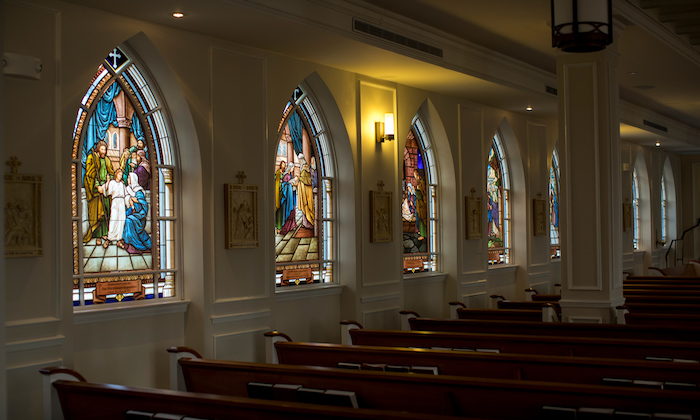When Dr. Kathleen Garces-Foley, Professor of Religious Studies at Marymount University, began work on a new campus ministry study alongside an impressive team of co-investigators in 2019, she never could have imagined conducting research during a pandemic.
“We expected to meet as a team in May of 2020 to develop the research protocols, but all that had to be done online,” Dr. Garces-Foley explained. “At first, it seemed daunting to conduct interviews online, but we consulted other researchers for tips and it’s worked out very nicely so far.”
Dr. Garces-Foley and a team of co-investigators, led by Principal Investigator Dr. John Schmalzbauer, Professor of Religious Studies at Missouri State University, are honing in on the changing landscape of campus ministries across the country through research titled, “The Landscape Study of Chaplaincy and Campus Ministry in the United States.”
A three-year grant from Lilly Endowment Inc. will support enhanced methods that build upon and add greater context to the National Study of Campus Ministries (NSCM), conducted between 2004 and 2008.
“One of our focuses is widening the diversity of the new study,” Schmalzbauer said. “Not just racial and ethnic diversity, but the inclusion of new religious groups.”
In order to capture how chaplaincy and campus ministry have transformed over more than a decade, the new study will focus on three main topics — chaplains and campus ministers; students; and programs and organizations.

“A lot has changed since the NSCM was conducted,” Dr. Garces-Foley explained. “At the time of the study, the impact of the Great Recession had not been fully realized. Evangelicals still outnumbered the religiously unaffiliated on campus. The smartphone and social media did not dominate undergraduate social life, and the campus interfaith movement was still in its infancy. More students on campus today face mental health challenges, and there is heightened attention to racial injustice and religious bigotry.”
But amidst the coronavirus pandemic, access to campuses for research has been limited. Yet, the team has found a creative way to move forward.
“Campus ministers and students are now very familiar with Zoom and comfortable using it,” Dr. Garces-Foley said. “We have saved money and time working online. I expect to conduct more interviews online in the future even after the pandemic because it’s so convenient.”
For her part in the study, Dr. Garces-Foley plans to study Catholic, Muslim and Hindu campus ministries and religious student groups at Georgetown University and George Mason University.
While she has been able to watch several religious services streamed online for research, Dr. Garces-Foley admits it can be difficult to get a deeper sense of campus ministry through virtual formats. Still, she notes how the higher education community is adjusting to the change.
“Most events have been moved online, either over Zoom or livestreamed on YouTube, but they are just not the same,” Dr. Garces-Foley explained. “Though I don’t get to see the students participating, it’s fascinating to see them use the chat function during a service. The online medium creates new opportunities for connection.”
Researchers are hopeful that they will be able to visit campuses in person as soon as it is safe to do so.
The full team also includes Dr. Catherine Hoegeman from Missouri State; Dr. Rebecca Kim at Pepperdine University; Dr. David Sikkink at the University of Notre Dame; and Missouri State University religious studies graduate student Cody Yanez. The grant’s project manager is J. Dane Wallace from Missouri State.





